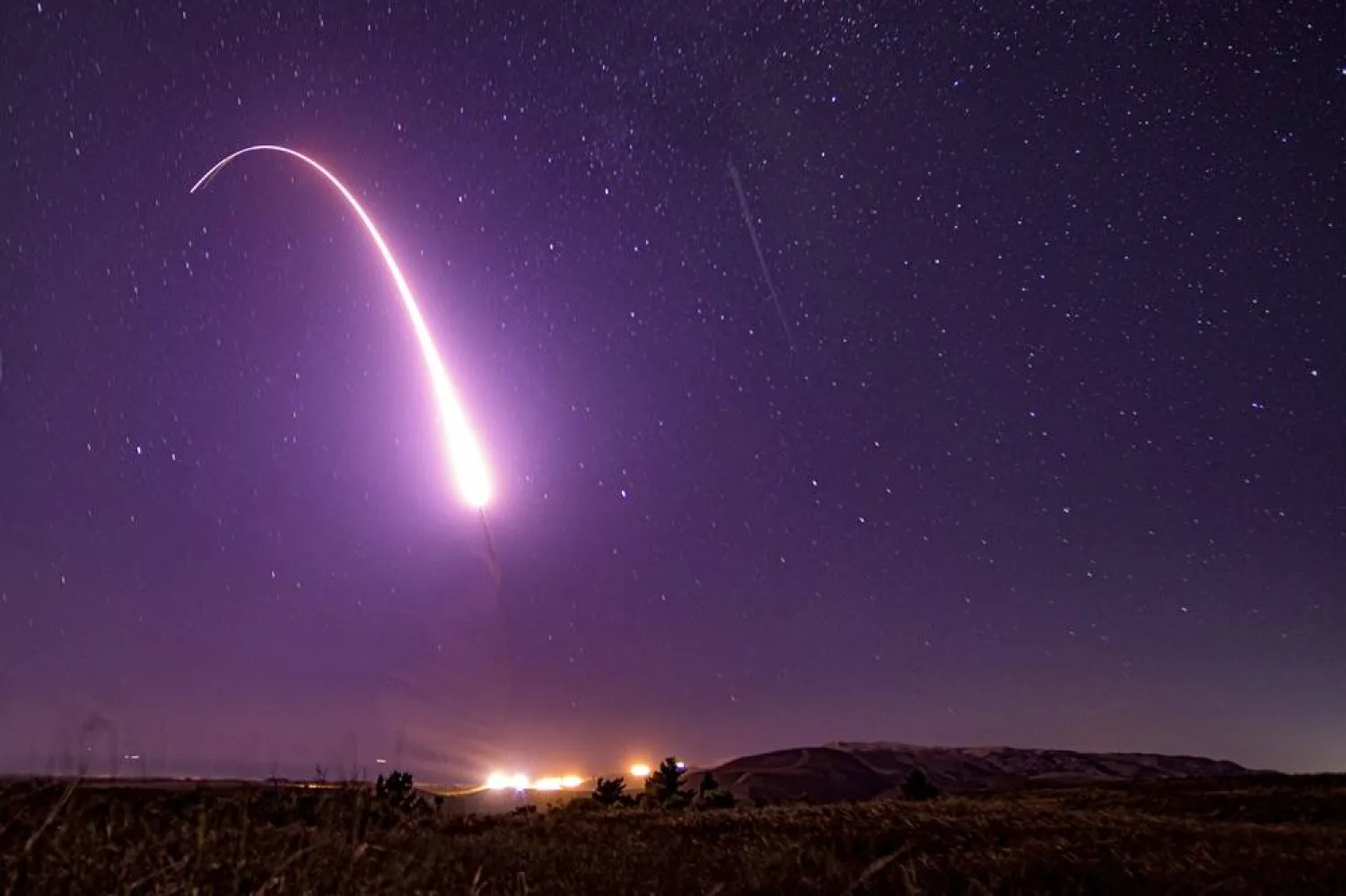The world's nine nuclear-armed states continue to modernize their nuclear weapons as the countries deepened their reliance on such deterrence in 2023, a Swedish think tank said Monday.
“We have not seen nuclear weapons playing such a prominent role in international relations since the Cold War,” said Wilfred Wan, director of the Stockholm International Peace Research Institute's weapons of mass destruction program.
Earlier this month, Russia and its ally Belarus launched a second stage of drills intended to train their troops in tactical nuclear weapons, part of the Kremlin’s efforts to discourage the West from ramping up support for Ukraine.
In a separate report, the International Campaign to Abolish Nuclear Weapons, ICAN, said the nine nuclear-armed states spent a combined total of $91.4 billion on their arsenals in 2023 – equivalent to $2,898 per second. The Geneva-based coalition of disarmament activists won the Nobel Peace Prize in 2017.
The group said that figures show a $10.7 billion increase in global spending on nuclear weapons in 2023 compared to 2022, with the United States accounting for 80% of that increase. The US share of total spending, $51.5 billion, is more than all the other nuclear-armed countries put together.
“There has been a notable upward trend in the amount of money devoted to developing these most inhumane and destructive of weapons over the past five years,” said Alicia Sanders-Zakre, Policy and Research Coordinator with ICAN.
The next biggest spender was China at $11.8 billion, she said, with Russia spending the third largest amount at $8.3 billion.
“All this money is not improving global security, in fact it’s threatening people wherever they live,” Sanders-Zakre said.
SIPRI estimated that some 2,100 of the deployed warheads were kept in a state of high operational alert on ballistic missiles, and nearly all belong to Russia or the USA. However, it said that China is also believed to have some warheads on high operational alert for the first time.
“Regrettably we continue to see year-on-year increases in the number of operational nuclear warheads,” said Dan Smith, SIPRI's director. He added that the trend will likely accelerate in the coming years “and is extremely concerning.”
Russia and the United States have together almost 90% of all nuclear weapons, SIPRI said. The sizes of their military stockpiles seem to have remained relatively stable in 2023, although Russia is estimated to have deployed around 36 more warheads with operational forces than in January 2023, the watchdog added.
In its SIPRI Yearbook 2024, the institute said that transparency regarding nuclear forces has declined in both countries in the wake of Russia’s full-scale invasion of Ukraine in February 2022, and debates around nuclear-sharing arrangements have increased in importance.
Washington suspended its bilateral strategic stability dialogue with Russia, and last year Moscow announced that it was suspending its participation in the New START nuclear treaty.
Of the total global inventory of an estimated 12,121 warheads in January, about 9,585 were in military stockpiles for potential use. An estimated 3,904 of those warheads were deployed with missiles and aircraft — which is 60 more than in January 2023 — and the rest were in central storage.
In Asia, India, Pakistan and North Korea are all pursuing the capability to deploy multiple warheads on ballistic missiles, the institute said. The United States, Russia, France, UK and China already have that capacity, enabling a rapid potential increase in deployed warheads, as well as the possibility for nuclear-armed countries to threaten the destruction of significantly more targets.
SIPRI stressed that all estimates were approximate, and the institute revises its world nuclear forces data each year based on new information and updates to earlier assessments.









